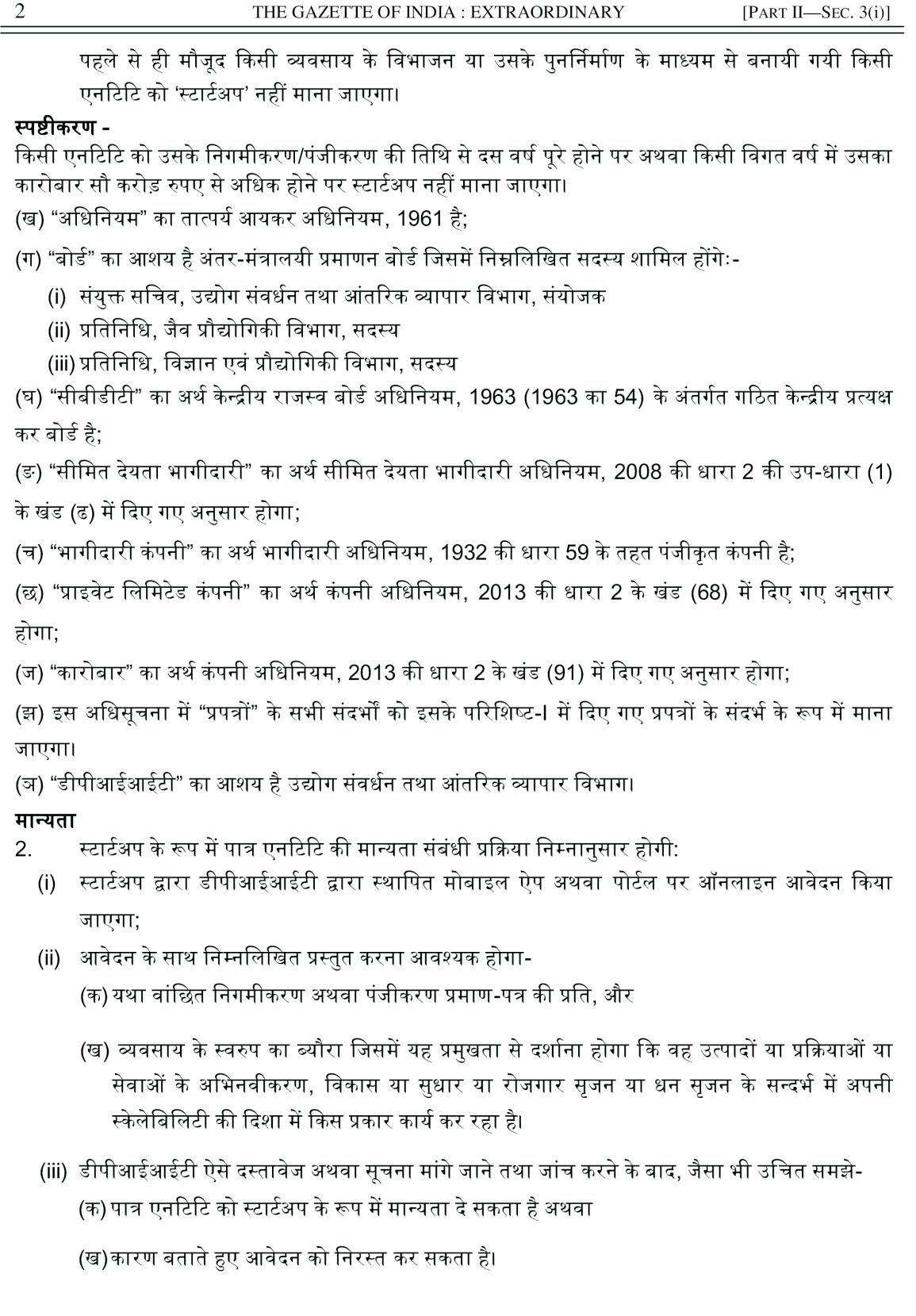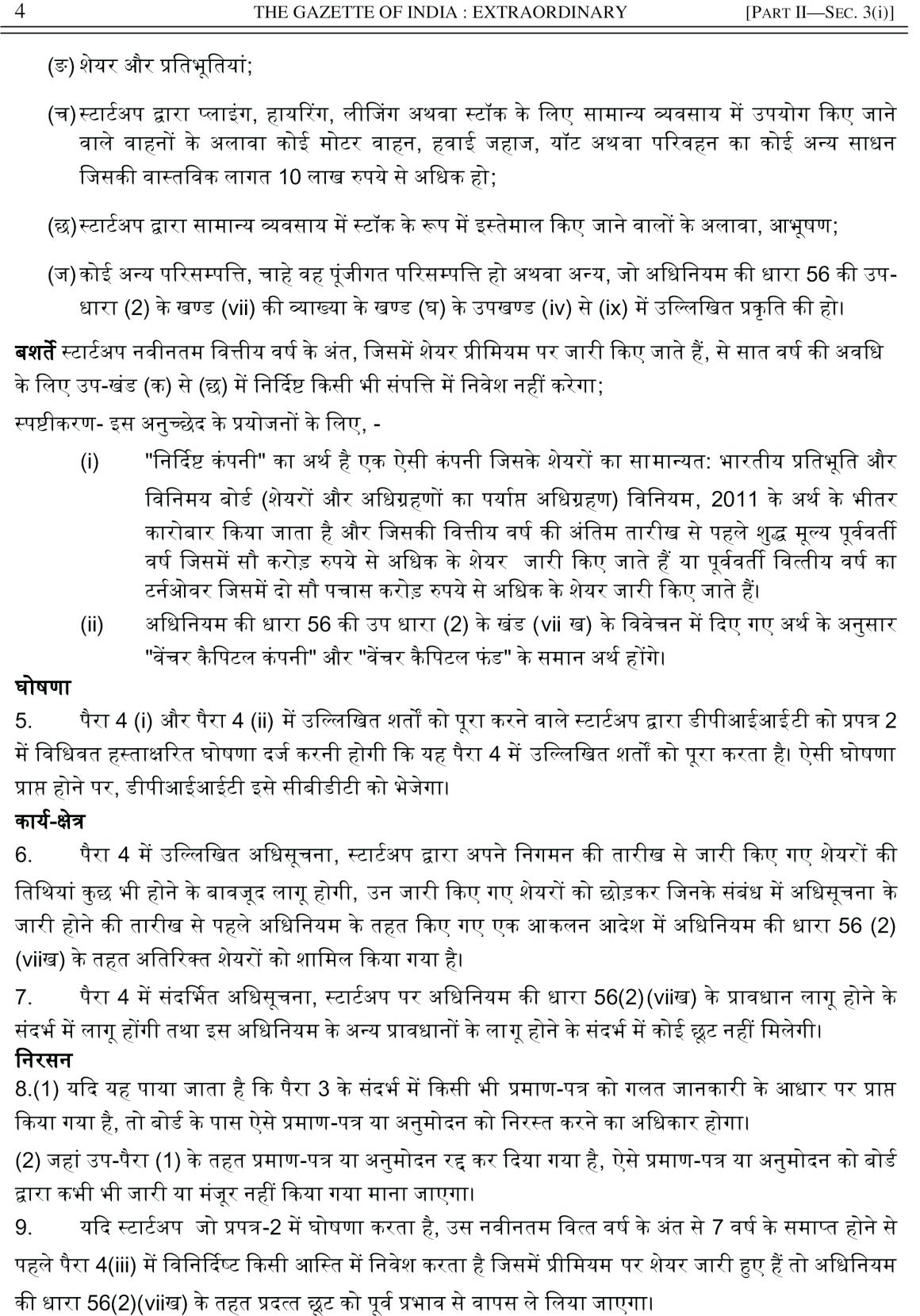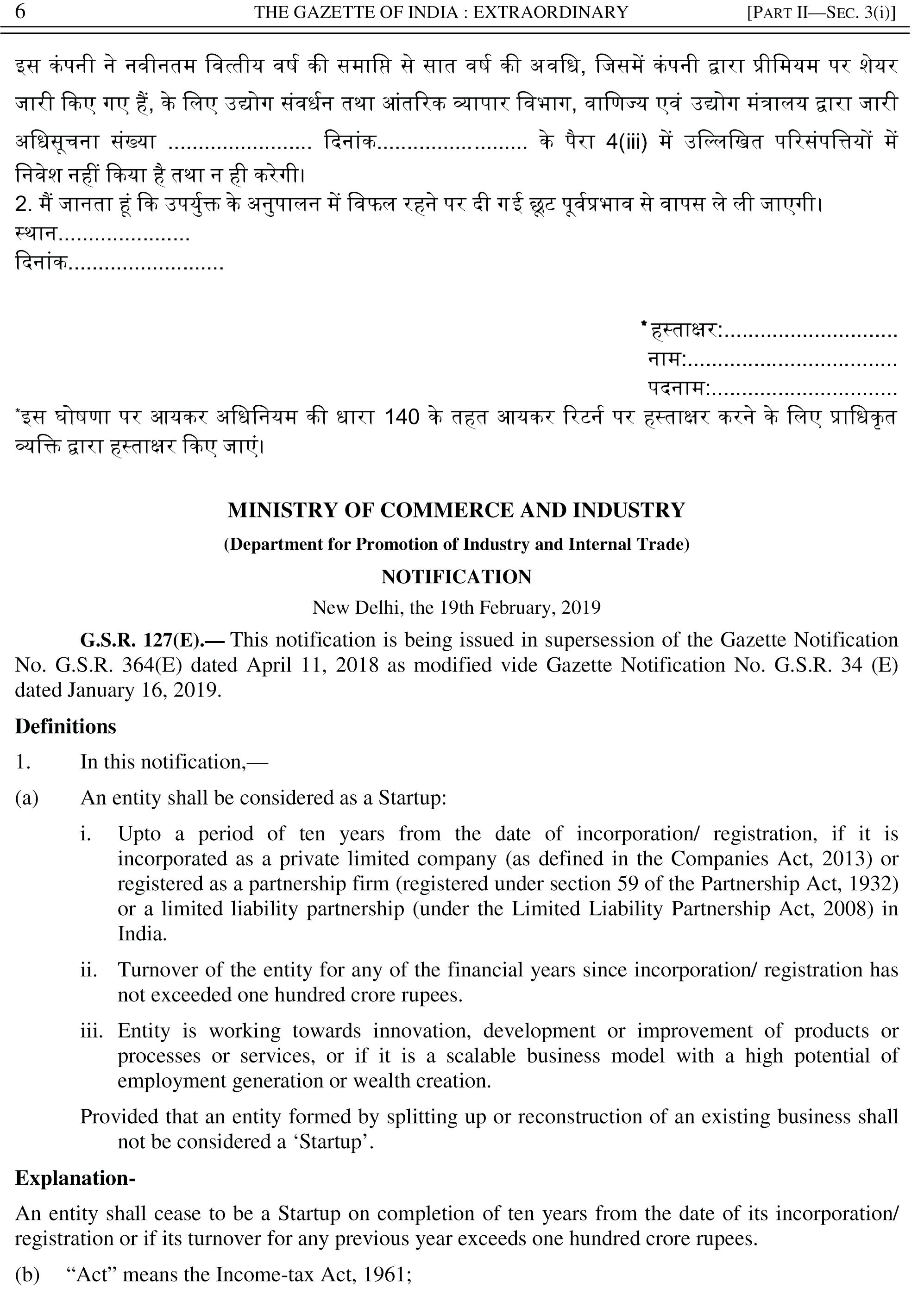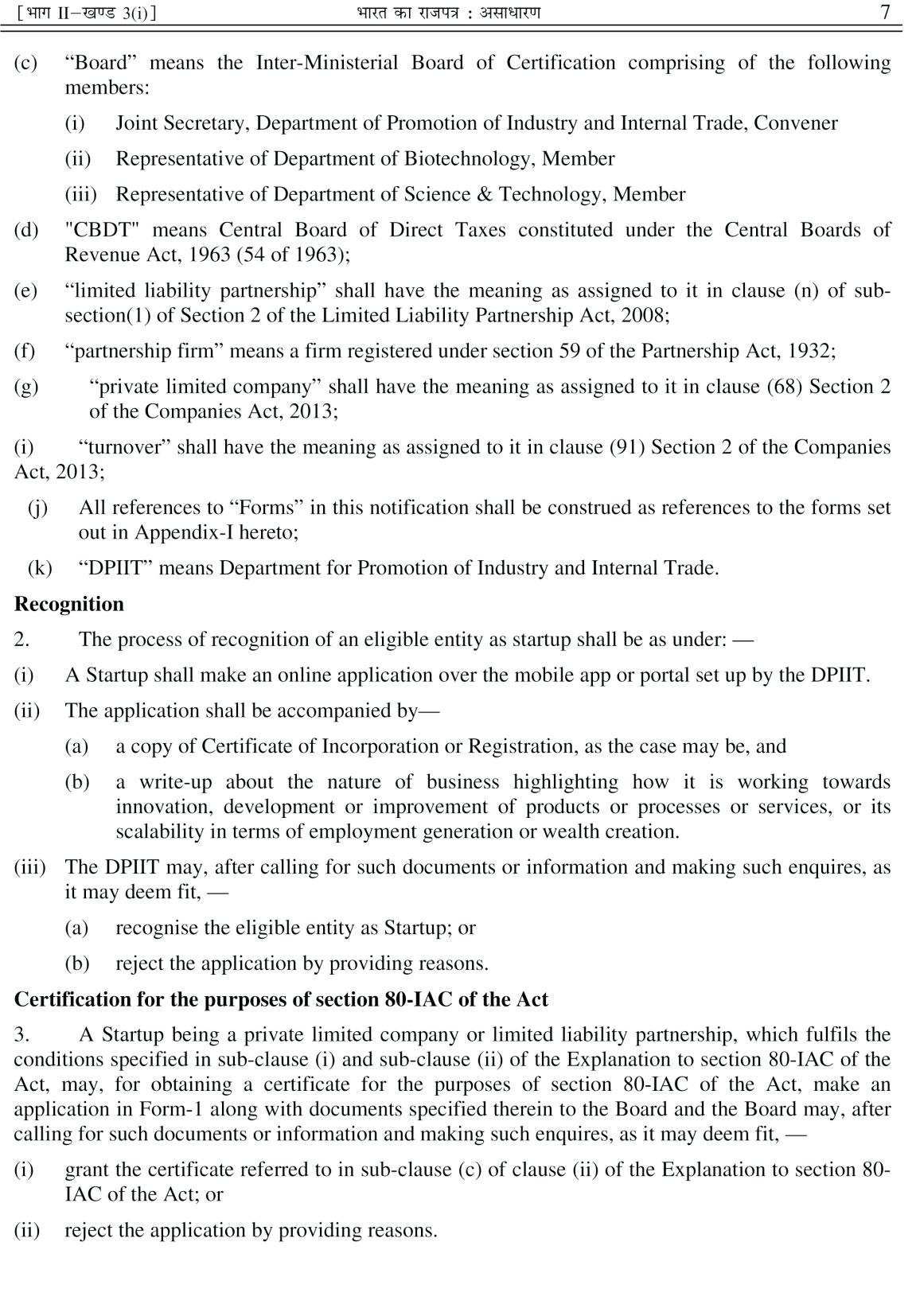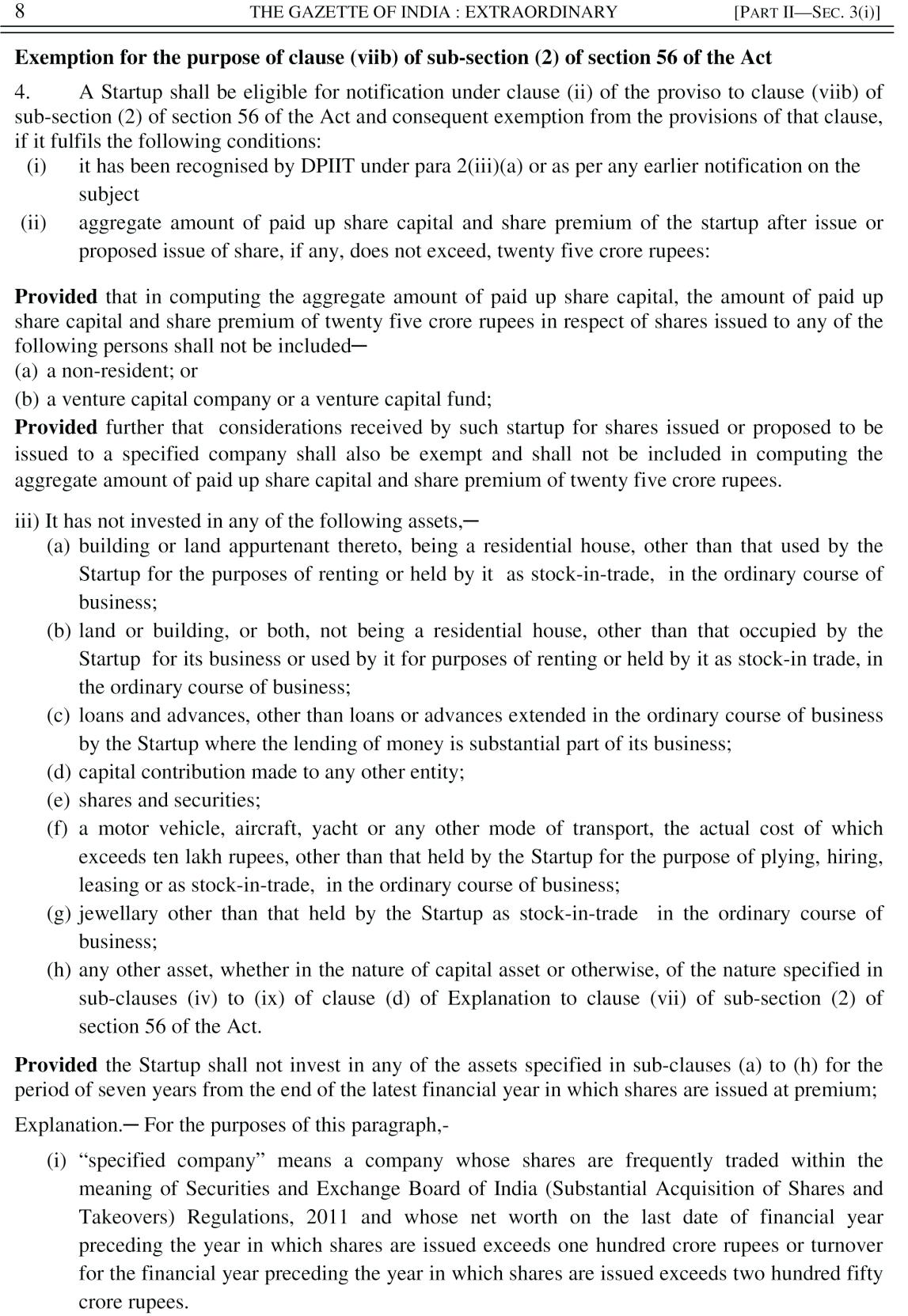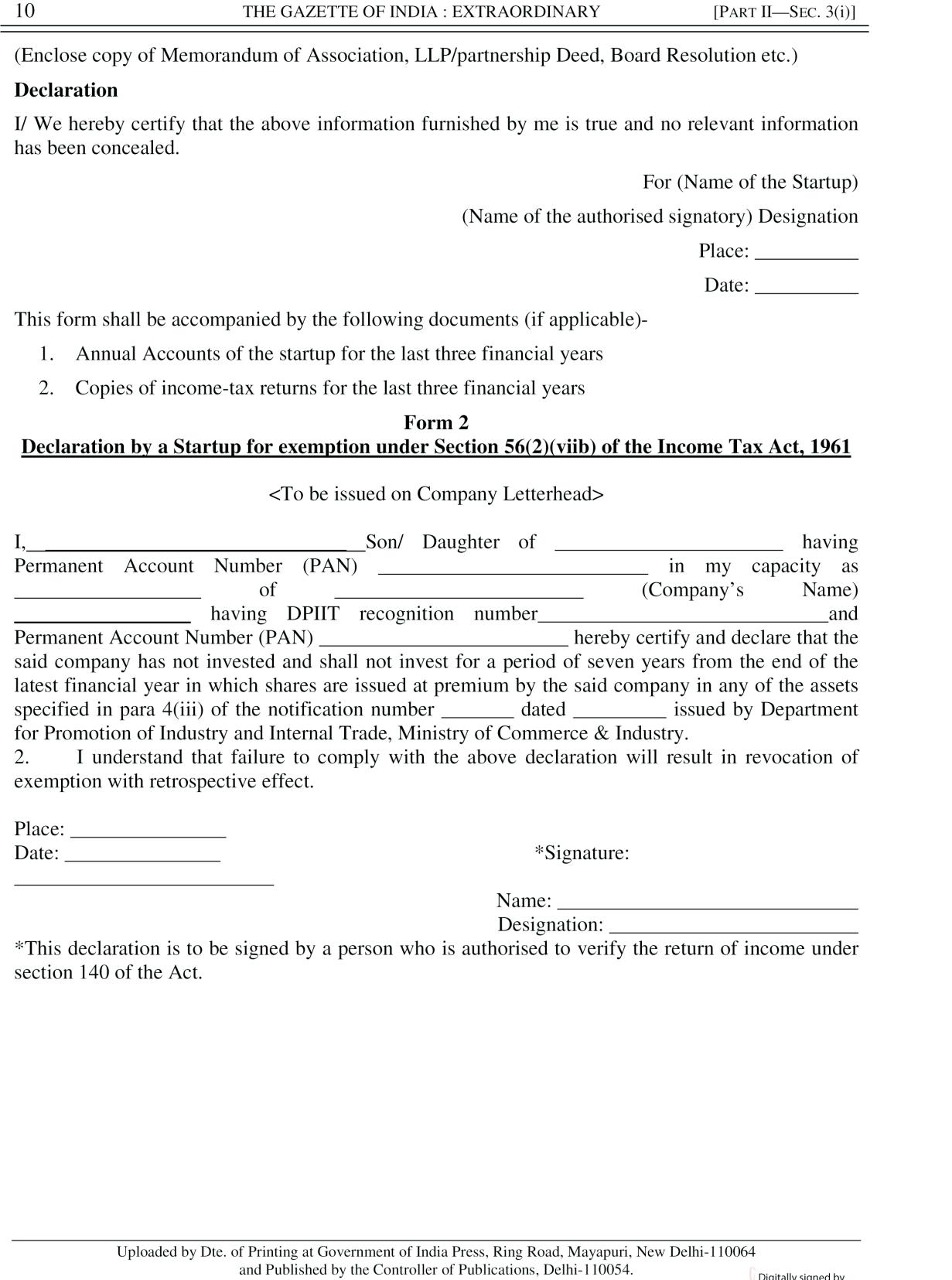












The National Innovation and Startup Policy 2019 for students and faculty of Higher EducationInstitutions(HEIs)willenabletheinstitutestoactivelyengagestudents,faculties and staff in innovation and entrepreneurship related activities. This framework will also facilitateMinistryofHumanResourceDevelopmentinbringinguniformityacrossHEIsin terms of Intellectual Property ownership management, technology licensing and institutional Startup policy, thus enabling creation of a robust innovation and Start up ecosystemacrossallHEIs.
je'k ik[kfj;ky ^fu'kd* ekuo llkèku fodkl e=h
LVkV vi bfM;k Hkkjr ljdkj mPp f'k{kk lLFkkuk e ,d dh ,d çe[k igy g] tk etcr LVkV vi ikfjfLFkfrdh uohu vkfo"dkjk dk gkFk e r= fodflr dju d fy, ,d yu] lgk;rk vkj çkRlkguk d çj.kk çnku djxA foÙk ik"k.k] m|kx 'k{kf.kd e pkgrk g fd mPprj f'k{kk Hkkxhnkjh vkj bUD;cVjk d lLFkkvk d fy, fuèkkfjr cfu;knh LrHkk ij vkèkkfjr gA fn'kk fun'kk dk bu lLFkkvk e> Hkkjr d lHkh mPp f'k{kk }kjk fu;fer çHkko eY;kdu d lLFkkuk d Nk=k vkj f'k{kdk lkFk dk;kfUor fd;k tk, rkfd d fy, jk"Vh; uokpkj vkj okfNr ifj.kkek dk gkfly LVkV vi uhfr 2019 *ij Bkl fd;k tk ldA fn'kk fun'k tkjh dju dh e Hkkjr d lHkh mPp f'k{kk ?kk"k.kk djr g, [k'kh gk jgh lLFkkuk l vujkèk djrk g fd gA ; fn'kk fun'k Hkkjr d o uokpj ;ä cfu;knh <kp d gtkjk rduhdh fuek.k d fy, viuk loJ"B d‚ytk d yk[kk ;okvk d eu vkj vko';d dne mBk,] efLr"d e uokpkj dh Hkkouk rkfd gekj f'k{kk lLFkkuk e dk l'kä djx vkj lLFkkuk LVkV vi vkj m|e'khyrk d dk u doy ;okvk d fy, ikfjfLFkfrdh r= dk vfèkd jktxkj d volj ink dju e l{ke cuk;k tk ldA enn djx] cfYd Hkkjr d

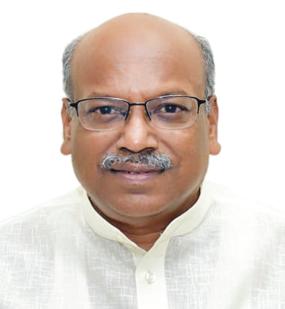
Indiaaspirestobecomea5 muchneededguidelines.These trilliondollareconomyina envisionaneducationalsystem nearfuture.Toreachthis orientedtowardsstartupsand mark,itneedstoevolve entrepreneurshipopportunities systemandmechanismsto forstudentsandfaculty.I convertthepresent appealallhighereducation demographicdividendinto institutionstoadoptand highqualitytechnicalhuman popularizetheseguidelines resource,capableofdoing amongsttheirfaculty,staffand cuttingedgeresearchand students,andencouragethem innovation,anddeep-tech toactivelypursuepathof entrepreneurship.Atthis innovationand juncture,theMHRD's entrepreneurship. InnovationCellandAICTE
IalsourgeMHRD's havebroughtoutthe innovationcelltoproactively ‘NationalInnovationand coordinatewitheducation StartupPolicy2019’for departmentsofallstate studentsandfaculty. governmentstoensurethat
IcongratulateMHRD's thesepolicyguidelinesare InnovationCellandAICTE implementedintheirtrue forconceptualizingthese spirit.

Innovationand availableforencouraging entrepreneurshipneedto studentsandfacultytopurse emergeasoneofthefocal startupandentrepreneurship pointsofoureducation relatedactivities,acommittee systemandMinistryof wasformedunderthe HumanResource guidanceofProf.Ashok Developmentismakingevery Jhunjhunwalatoevolvesetof possibleefforttoachievethis recommendationsandguiding goal.Weareaggressively principlesforhighereducation promotinginitiativeslike institutionsforpromoting Hackathons,tech-fests,idea innovationand competition,startup entrepreneurshipecosystem bootcamps,etc.tofosterthe withincampuses. cultureofinnovationinour
Ifirmlybelievethatthe educationinstitutions.We recommendationsprescribed wantlargenumberofstudents inthisdocumentwillpavethe andfacultytoworkonnew wayfordevelopingand ideasandconverttheminto supportinganentrepreneurial successfulenterprises. cultureinallthehigher
Asnoformalguidelineswere educationinstitutionsofIndia.
Iamveryhappytoseethat publishedbytheAICTEand thedetailedguidelineshave beingimplementedbythe beenissuedbyMinistryof AICTEstartupimplementation HumanResource committeeheadedbyfirst DevelopmentonNational generationentrepreneurShri InnovationandStartupPolicy SanjayInamdarandcovers forstudentsandfacultiesof severalpracticalaspectsof highereducationinstitutions innovationandstartups.The whichfurtherstrengthensthe guidelineshighlightvarious StartupPolicyreleasedbyAll importantpointsincluding IndiaCouncilofTechnical revenuesharingmechanism EducationinNovember2016 forlicensing,ownershipofIP, fromRashtrapatiBhawan, equitysharingmechanism justafterfewmonthsof betweeninstituteandstartups Startupactionplanannounced incubatedatinstitute. bytheGovernmentofIndiain IwishMinistryofHuman January2016. ResourceDevelopmentandall Iampleasedtosharethatthe theeducationalinstitutesin presentpolicyguidelinesare Indiaagrandsuccessinthis builtontheearlierversion mission.
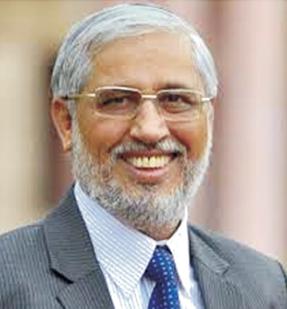
Iamdelightedtoknowthat mechanismsforpromotingand MinistryofHumanResource managinginnovations.I Developmenthasdevisedthe believethatthe‘Guidelineson guidelinesforpromoting NationalInnovationand innovationand StartupPolicy2019’will entrepreneurshipamong providetherequireddirection studentsandfacultyofhigher andsupporttoalargenumber educationinstitutions.This ofuniversitiesanditsaffiliated willguidetheinstitutionson institutionsinIndiaon themechanismsofhand handlingIntellectualPropertyholdingthestudentsand Rights,innovationsandstartupfacultymembersand relatedissues,supportingtheirinitiativesfor Iextendmybestwishestotheinnovationsandstartups.The institutionsforsteppingaheadbestuniversitiesaroundthe worldhaveevolvedsound toimplementtheseguidelines.
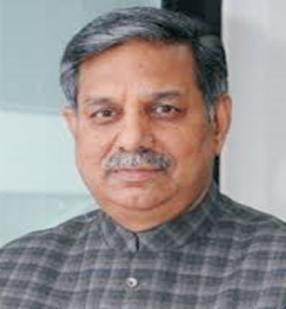
Attheoutset,Ithankthe succeed.Thegoalofthe MinistryofHumanResource institutionsshouldthereforebe Developmentforproviding tolinkInnovationto meanopportunitytoworkon Enterprisestofinancial theguidelineswithanaimof success. nurturingInnovationand Isincerelycongratulatethe Startupsecosysteminhigher MinistryofHumanResource educationinstitutions.My Developmentforitsinitiative firmbeliefisthatIncubation towardsstrengtheningof andInnovationneedtobe innovationandstartup organicallyinterlinked. ecosystemineducation Withoutinnovation,new ecosystemandwishitagrand enterprisesareunlikelyto success.


Attheoutset,Iwouldliketo ourIndianinstitutionfigureintop acknowledgeallcommittee 100globalR&Iinstitutionsand members,withoutwhoseactive only3Indianinstitutionsare contributionsandsupport,these withintop200.Thisneedsto policyguidelineswouldnothave changeandcanonlyhappenif beenpossible. ourinstitutionsgivesubstantial emphasisonR&I.Innext5years,Thesepolicyguidelineson IndianeedstosystematicallyInnovationandStartupshave worktoensurethatit’s10beenframedwithanaimto institutionsareamongsttop100.promotetheinnovationand entrepreneurshipculturewithin Toensurethatinnovationand ourhighereducationinstitutions. entrepreneurshipemergesasthe IfIndiaaimstobecome5 primaryfulcrumofIndia’shigher trillion-dollareconomy,thenit educationsystems,MHRD’s needstoevolvesystemsand InnovationCell(MIC)is mechanismstoconvertthe undertakingmultipleinitiatives presentdemographicdividend likeSmartIndiaHackathon,Atal intohighqualitytechnical RankingofInstitutionsof humanresourcecapableofdoing InnovationAchievements cuttingedgeresearchand (ARIIA),establishing innovation(R&I)anddeep-tech Institution’sInnovationCouncils entrepreneurship. (IIC)in1500+institutions, InnovationCompetitions,etc.OnGlobalInnovationIndex (GII)2019,India’srankis52
ThepresentNationalInnovation whileChinaisfaraheadofus andStartupPolicyisyetanother andranks14.Considering stepinthatdirection.Webelieve India’srealR&Ipotential,we thatthispolicywillimmensely shouldcertainlyaspiretobe benefitcentralinstitutions,state withintop25innext5yearsand universitiesandaffiliated itcanhappenonlyifwecan institutionswhicharecurrently developrobustInnovationand notwellverseathandling entrepreneurshipecosystem challengesrelatedtoinnovation, withinourhighereducation startupandentrepreneurship institutions.Moreover, conceivedbytheirfacultyand unfortunatelyatpresent,noneof students.

1 Prof.AshokJhunjunwala
Professor,IndianInstituteofTechnologyMadras
2. ShriSukhbirSinghSandhu Member AdditionalSecretary(HigherEducation) MinistryofHumanResourceDevelopmentNewDelhi
3. Prof.AnilDSahasrabudhe Member Chairman,AllIndiaCouncilofTechnicalEducationNewDelhi
4. Dr.RajnishJain Member Secretary,UniversityGrantsCommission
5. Dr.G.Raghuram Member Director,IndianInstituteofManagementBangalore
6. Dr.AnandDeshpande Member ChairmanandManagingDirector,PersistentSystems,Pune
7. Dr.AbhayKarandikar Member Director,IndianInstituteofTechnology,Kanpur
8. Dr.UdaiB.Desai Member Director,IndianInstituteofTechnologyHyderabad
9. Dr.AppaRaoPodile Member Vice-Chancellor,UniversityofHyderabad
10. Dr.MiniShajiThomas Member Director,NationalInstituteofTechnology,Trichy
11. Dr.SanjayHInamdar Member CEO,FluconIndustries&Chairman,AICTEStartupPolicyCommittee
12. Dr.UdayKumarYaragatti Member Director,MNIT,Jaipur
13. Dr.GautamBiswas Member Director,IndianInstituteofInformationTechnologyGuwahati
14. Sh.HiranmayMahanta Invitee Director,GujaratTechnologicalUniversityInnovationCouncil
15. Dr.AbhayJere MemberSecretary ChiefInnovationOfficer,MinistryofHumanResourceDevelopment
16. Mr.DipanSahu ExecutiveConsultant,MinistryofHumanResourceDevelopmentInnovationCell
17. Dr.PoojaRawat InnovationOfficer,MinistryofHumanResourceDevelopmentInnovationCell

InNovember2016,AllIndiaCouncilofTechnicalEducation(AICTE)releasedaStartupPolicydocumentfor AICTEapprovedinstitutions,toaddresstheneedofinculcationofinnovationandentrepreneurialculturein highereducationinstitutions(HEIs).ThepolicyprimarilyfocusedonguidingtheAICTEapprovedinstitutions inimplementing‘StartupActionPlan’ofGovernmentofIndia.SubsequenttoreleaseoftheStartuppolicyby AICTE and further interaction & feedback received from education institutions, a need was felt for a more elaborateandcomprehensivepolicyguidingdocument,whichcouldbeapplicableforalltheHEIsinIndia.
Afifteen membered committee was constituted by Ministry of Human Resource Development to formulate detailedguidelinesforvariousaspectsrelatedtoinnovation,Startupandentrepreneurshipmanagement.This committee deliberated on various facets for nurturing the innovation and Startup culture in HEIs, which covered Intellectual Property ownership, revenue sharing mechanisms, norms for technology transfer and commercialization, equity sharing, etc.After multiple rounds of meetings, National Innovation and Startup Policy2019forstudentsandfacultiesofHEIswereprepared.
Indiaaspirestobecome5trillion-dollareconomyby2024.Toreachthemark,itneedstoevolvesystemsand mechanismstoconvertthepresentdemographicdividendintohighqualitytechnicalhumanresourcecapable ofdoingcuttingedgeresearchandinnovationanddeep-techentrepreneurship.

for HEIs
The 'National Student and Faculty Startup policy 2019' is a guiding framework to envision an educational system oriented towards start ups and entrepreneurship opportunities for student and faculties. The guidelines provide ways to Indian HEIs for developing entrepreneurial agenda, managing Intellectual Property Rights (IPR) ownership, technology licensing and equity sharing in Startups or enterprises establishedbyfacultyandstudents.
InIndia,innovationisstillnottheepicenterofeducation.Inordertoachievetheculturalandattitudinalshift and to ensure that ‘Innovation and Startup’culture is the primary fulcrum of our higher education system a policyframeworkandguidelinesaretheneedofthishour.Theseguidelineswillenable institutionstoactively support their faculty, staff and students to participate in innovation and entrepreneurship (I&E) related activities,thusencouragingstudentsandfacultytoconsiderstartupsandentrepreneurshipasacareeroption. TheserecommendationsandguidingprincipleswillalsohelpHEIsincreatingtheirownpolicyframework,if required.
Moreover,theseguidelines willfacilitateMinistry ofHumanResource Developmentinbringing uniformity across HEIs in terms of IPR ownership management, technology licensing and institutional startups policy, thusenablingcreationofarobustinnovationandStartupecosystemacrossallHEIs.Theseguidelineswillalso helpemphasizethattheentrepreneurshipisallaboutcreatingabusiness,whichisfinanciallysuccessful.
a. Entrepreneurship promotion and development should be one of the major dimensions of the HEIs strategy To facilitate development of an entrepreneurial ecosystem in the organization, specific objectivesandassociatedperformanceindicatorsshouldbedefinedforassessment.
b. Implementation of entrepreneurial vision at the institute should be achieved through mission statements rather than stringent control system. The entrepreneurial agenda should be the responsibilityofaseniorpersonatthelevelofdean/director/equivalentpositiontobringinrequired commitmentandmustbewellunderstoodbythehigherauthorities.However,onemustunderstand thatpromotingentrepreneurshiprequiresadifferenttypeofmindsetascomparedtootheracademic activities.Therefore,thispersonshouldbeverycarefullychosenfromsomeonewhounderstandsthe industryandaboveallbusiness.
c. Resource mobilisation plan should be worked out at the institute for supporting pre-incubation, incubationinfrastructureandfacilities.Asustainablefinancialstrategyshouldbedefinedinorderto reducetheorganizationalconstraintstoworkontheentrepreneurialagenda.
i. Investmentintheentrepreneurialactivitiesshouldbeapartoftheinstitutionalfinancialstrategy. Minimum1%fund ofthetotal annualbudgetof theinstitutionshould beallocatedfor funding andsupportinginnovationandstartupsrelatedactivitiesthroughcreationofseparate‘Innovation fund’.
ii. Thestrategyshouldalsoinvolveraisingfundsfromdiversesourcestoreducedependencyonthe publicfunding.Bringinginexternalfundingthroughgovernment(stateandcentral)suchasDST, DBT, MHRD,AICTE, TDB, TIFAC, DSIR, CSIR, BIRAC, NSTEDB, NRDC, Startup India, InvestIndia,MeitY,MSDE,MSME,etc.andnon-governmentsourcesshouldbeencouraged.
iii. To support technology incubators, academic institutes may approach private and corporate sectorstogeneratefunds,underCorporateSocialResponsibility(CSR)asperSection135ofthe CompanyAct 2013.
iv. Institute may also raise funding through sponsorships and donations. Institute should actively engagealumninetworkforpromotingInnovation&Entrepreneurship(I&E).
d. For expediting the decision making, hierarchical barriers should be minimized and individual autonomyandownershipofinitiativesshouldbepromoted.

e. Importanceofinnovationandentrepreneurialagendashouldbeknownacrosstheinstituteandshould bepromotedandhighlightedatinstitutionalprogramssuchasconferences,convocations,workshops, etc.
f. StudentandfacultystartupPolicyandactionplanshouldbeformulatedatuniversitylevel,whichisin linewiththecurrentdocumentalongwithwell-definedshort-termandlong-termgoals.Microaction planshouldalsobedevelopedbytheaffiliatedinstitutestoaccomplishthepolicyobjectives.
MIC
g. Instituteshould developand implementI &E strategyand policyfor theentire institutein orderto integrate the entrepreneurial activities across various centers, departments, faculties, within the institutes,thusbreakingthesilos.
h. Producttomarketstrategyforstartupsshouldbedevelopedbytheinstituteoncasetocasebasis.

i. Development of entrepreneurship culture should not be limited within the boundaries of the institution.
i. HEIsshouldbethedrivingforceindevelopingentrepreneurshipcultureinitsvicinity(regional, social and community level). This shall include giving opportunity for regional startups, provision to extend facilities for outsiders and active involvement of the institute in defining strategicdirectionforlocaldevelopment.
ii. Strategicinternationalpartnershipsshouldbedevelopedusingbilateralandmultilateralchannels withinternationalinnovationclustersandotherrelevantorganizations.Moreover,international exchange programs, internships, engaging the international faculties in teaching and research shouldalsobepromoted.
Creationofpre-incubationandincubationfacilitiesfornurturinginnovationsandstartupsinHEIsinstitutions shouldbeundertaken.IncubationandInnovationneedtobeorganicallyinterlinked.Withoutinnovation,new enterprisesareunlikelytosucceed.ThegoaloftheeffortshouldbetolinkINNOVATIONtoENTREPRISESto FINANCIALSUCCESS.
a. AllHEIsareadvisedtocreatefacilitieswithintheirinstitutionforsupportingpre-incubation(e.g.IICs as per the guidelines by MHRD’s Innovation Cell, EDC, IEDC, New-Gen IEDC, Innovation Cell, StartupCell,StudentClubs,etc.)andIncubation/accelerationbymobilizingresourcesfrominternal andexternalsources.
b. ThisPre-Incubation/Incubationfacilityshouldbeaccessible24x7tostudents,staffandfacultyofall disciplinesanddepartmentsacrosstheinstitution.
c. Pre-incubationfacilitiesmayormaynotbeaseparatelyregisteredentityorSpecialPurposeVehicle (SPV),butwerecommendthat‘IncubationcumTechnologyCommercializationUnit’(ITCU)should beaseparateentitypreferablyregisteredunderSection-8ofCompanyAct2013or'Society'registered underSocietyRegistrationActwithindependentgovernancestructure.Thiswillallowmorefreedom toIncubatorsindecisionmakingwithlessadministrativehasslesforexecutingtheprogramsrelatedto innovation, IPR and Startups. Moreover, they will have better accountability towards investors supportingtheincubationfacility
d. HEIs may offer mentoring and other relevant services through Pre-incubation/Incubation units in-return for fees, equity sharing and (or) zero payment basis. The modalities regarding Equity SharinginStartupssupportedthroughtheseunitswilldependuponthenatureofservicesofferedby theseunitsandareelaboratelyexplainedinSection3.
a. HEIs are expected to establish processes and mechanisms for easy creation and nurturing of Start ups/enterprises by students (UG, PG, Ph.D.), staff (including temporary or project staff), faculty, alumniandpotentialstartupapplicantsevenfromoutsidetheinstitutions.
b. Whiledefiningtheirprocesses,institutionswillensuretoachievefollowing:
i. Incubationsupport:Offeraccesstopre-incubation&Incubationfacilitytostartupsbystudents, staffandfacultyformutuallyacceptabletime-frame.

Incaseaninstitutedoesn’thaveadedicatedfacility/infrastructureofitsown,thenitmayreach outtonearestincubationfacilitiesinotherHEIsinordertofacilitateaccesstotheirstudents,staff andfaculty
ii. Will allow licensing of IPR from institute to start up: Ideally students and faculty members intendingtoinitiateastartupbasedonthetechnologydevelopedorco-developedbythemorthe technologyownedbytheinstitute,shouldbeallowedtotakealicenseonthesaidtechnologyon easyterm,eitherintermsof equityintheventureand/orlicensefeesand/orroyaltytoobviate theearlystagefinancialburden.
iii. Willallowsettingupastartup(includingsocialstartups)andworkingpart-timeforthestartups while studying / working: HEIs may allow their students / staff to work on their innovative projectsandsettingupstartups(includingSocialStartups)orworkasintern/part-timeinstart ups (incubated in any recognized HEIs/Incubators) while studying / working. Student Entrepreneursmayearncreditsforworkingoninnovativeprototypes/BusinessModels.Institute mayneedtodevelopclearguidelinestoformalizethismechanism.Studentinventorsmayalsobe allowed to opt for start up in place of their mini project/ major project, seminars, summer trainings.Theareainwhichstudentwantstoinitiateastartupmaybeinterdisciplinaryormultidisciplinary However,thestudentmustdescribehowtheywillseparateandclearlydistinguish theirongoingresearchactivitiesasastudentfromtheworkbeingconductedatthestartup.
c. Students who are under incubation, but are pursuing some entrepreneurial ventures while studying shouldbeallowedtousetheiraddressintheinstitutetoregistertheircompanywithduepermission fromtheinstitution.
d. Studentsentrepreneurs shouldbe allowedto sitfor theexamination, evenif theirattendance isless thantheminimumpermissiblepercentage,withduepermissionfromtheinstitute.
e. HEIs should allow their students to take a semester/year break (or even more depending upon the decision of review committee constituted by the institute) to work on their start ups and re-join academicstocompletethecourse.Studententrepreneursmayearnacademiccreditsfortheirefforts while creating an enterprise. Institute should set up a review committee for review of start up by students,andbasedontheprogressmade,itmayconsidergivingappropriatecreditsforacademics.
f. Theinstituteshouldexploreprovisionofaccommodationtotheentrepreneurswithinthecampusfor someperiodoftime.
MIC
g. Allowfacultyandstafftotakeoffforasemester/year(orevenmoredependinguponthedecisionof reviewcommitteeconstitutedbytheinstitute)assabbatical/unpaidleave/casualleave/earnedleave for working on startups and come back. Institution should consider allowing use of its resource to faculty/students/staff wishing to establish start up as a fulltime effort. The seniority and other academicbenefitsduringsuchperiodmaybepreservedforsuchstafforfaculty.
h. Start a part-time/full time MS/ MBA/ PGDM (Innovation, entrepreneurship and venture development)programwhereonecangetdegreewhileincubatingandnurturingastartupcompany AICTEhasalreadyissuedguidelinesforasimilarprogram.
i. Institutewillfacilitatethestartupactivities/technologydevelopmentbyallowingstudents/faculty/ stafftouseinstituteinfrastructureandfacilities,asperthechoiceofthepotentialentrepreneurinthe followingmanners:
i Short-term/six-month/one-yearpart-timeentrepreneurshiptraining.
ii Mentorshipsupportonregularbasis.
iii Facilitation in a variety of areas including technology development, ideation, creativity, designthinking,fundraising,financialmanagement,cash-flowmanagement,newventure planning, business development, product development, social entrepreneurship, productcosting, marketing, brand-development, human resource management as well as law and regulationsimpactingabusiness.
iv Institutemayalsolinkthestartupstootherseed-fundproviders/angelfunds/venturefunds oritselfmaysetupseed-fundoncetheincubationactivitiesmature.
v LicenseinstituteIPRasdiscussedinsection4below.
j. In return of the services and facilities, institute may take 2% to 9.5% equity/ stake in the startup/ company, based on brand used, faculty contribution, support provided and use of institute’s IPR (alimitof9.5%issuggestedsothatinstitutehasnolegalliabilityarisingoutofstartup.Theinstitute should normally take much lower equity share, unless its full-time faculty/ staff have substantial shares). Other factors for consideration should be space, infrastructure, mentorship support, seedfunds,supportforaccounts,legal,patentsetc.
• Forstaffandfaculty,institutecantakeno-morethan20%ofsharesthatstaff/facultytakes while drawingfullsalaryfromtheinstitution;however,thissharewillbewithinthe9.5% capofcompanyshares,listedabove.
• Norestrictiononsharesthatfaculty/staffcantake,aslongastheydonotspendmorethan 20% of office time on the startup in advisory or consultative role and do not compromise withtheirexistingacademicandadministrativework/duties.Incasethefaculty/staffholds theexecutiveormanagerialpositionformorethanthreemonthsinastartup,thentheywill goonsabbatical/leavewithoutpay/earnedleave.
• Incaseofcompulsoryequitymodel,Startupmaybegivenacoolingperiodof3monthsto use incubation services on rental basis to take a final decision based on satisfaction of

MIC servicesofferedbytheinstitute/incubator.Inthatcase,duringthecoolingperiod,institute cannotforcestartuptoissueequityonthefirstdayofgrantingincubationsupport.
k. Theinstituteshouldalsoprovideservicesbasedonmixtureofequity,fee-basedand/orzeropayment model.So,astartupmaychoosetoavailonlythesupport,notseedfunding,bytheinstituteonrental basis.
l. Institutecouldextendthisstartupfacilitytoalumnioftheinstituteaswellasoutsiders.
m. Participation in start uprelated activities needs to be considered as a legitimate activity of faculty in addition to teaching, R&D projects, industrial consultancy and management duties and must be consideredwhileevaluatingtheannualperformanceofthefaculty.Everyfacultymaybeencouraged tomentoratleastonestartup.
n. Productdevelopmentandcommercializationaswellasparticipatingandnurturingofstartupswould nowbe addedto abucketof faculty-dutiesandeach facultywouldchoose amix andmatchof these activities (in addition to minimum required teaching and guidance) and then respective faculty are evaluatedaccordinglyfortheirperformanceandpromotion.
o. Institutionsmightalsoneedtoupdate/change/reviseperformanceevaluationpoliciesforfacultyand staffasstatedabove.
p. Instituteshouldensurethatatnostageanyliabilityaccruetoitbecauseofanyactivityofanystartup.
q. Whereastudent/facultystartuppolicy ispre-existinginaninstitute, thentheinstitutemayconsider modifyingtheirpolicyinspiritoftheseguidelines.
a. When institute facilities / funds are used substantially or when IPR is developed as a part of curriculum/academicactivity,IPRistobejointlyownedbyinventorsandtheinstitute.
i. Inventorsandinstitutecouldtogetherlicensetheproduct/IPRtoanycommercialorganisation, withinventorshavingtheprimarysay.Licensefeescouldbeeither/oramixof
1. Upfrontfeesorone-timetechnologytransferfees
2. Royaltyasapercentageofsale-price
3. Sharesinthecompanylicensingtheproduct
ii. An institute may not be allowed to hold the equity as per the current statute, so SPV may be requestedtoholdequityontheirbehalf.
iii. If one or more of the inventors wish to incubate a company and license the product to this company,theroyaltieswouldbenomorethan4%ofsaleprice,preferably1to2%,unlessitis puresoftwareproduct.Ifitissharesinthecompany,shareswillagainbe1%to4%.Forapure softwareproductlicensing,theremaybearevenuesharingtobemutuallydecidedbetweenthe instituteandtheincubatedcompany.
b. Ontheotherhand,ifproduct/IPRisdevelopedbyinnovatorsnotusinganyinstitutefacilities,outside

officehours(forstaffandfaculty)ornotasapartofcurriculumbystudent,thenproduct/IPRwillbe entirelyownedbyinventorsinproportiontothecontributionsmadebythem.Inthiscase,inventorscan decidetolicensethetechnologytothirdpartiesorusethetechnologythewaytheydeemfit.
c. If there is a dispute in ownership, a minimum five membered committee consisting of two faculty members(havingdevelopedsufficientIPRandtranslatedtocommercialisation), twooftheinstitute’s alumni/industryexperts(havingexperienceintechnologycommercialisation)andonelegaladvisor withexperience inIPR, willexamine theissue aftermeeting theinventors andhelp themsettle this, hopefullytoeverybody’ssatisfaction.Institutecanusealumni/facultyofotherinstitutesasmembers, iftheycannotfindsufficientlyexperiencedalumni/facultyoftheirown.
d. InstituteIPRcellorincubationcenterwillonlybeacoordinatorandfacilitatorforprovidingservicesto faculty,staffandstudents.Theywillhavenosayonhowtheinventioniscarriedout,howitispatented orhowitistobelicensed.Ifinstituteistopayforpatentfiling,theycanhaveacommitteewhichcan examine whether the IPR is worth patenting. The committee should consist of faculty who have experience and excelled in technology translation. If inventors are using their own funds or noninstitutefunds,thentheyaloneshouldhaveasayinpatenting.
e. All institute’s decision-making body with respect to incubation / IPR / technology-licensing will consist of faculty and experts who have excelled in technology translation. Other faculty in the department / institute will have no say, including heads of department, heads of institutes, deans or registrars.
f. Interdisciplinaryresearchandpublicationonstartupandentrepreneurshipshouldbepromotedbythe institutions.
a. Instituteshouldrecruitstaffthathaveastronginnovationandentrepreneurial/industrialexperience, behaviourandattitude.ThiswillhelpinfosteringtheI&Eculture.
i. Some of the relevant faculty members with prior exposure and interest should be deputed for trainingtopromoteI&E.
ii. Toachievebetterengagementofstaffinentrepreneurialactivities,institutionalpolicyoncareer developmentofstaffshouldbedevelopedwithconstantupskilling.
b. Facultyanddepartmentsoftheinstituteshavetoworkincoherenceandcross-departmentallinkages should be strengthened through shared faculty, cross-faculty teaching and research in order to gain maximumutilizationofinternalresourcesandknowledge.
c. Periodicallysomeexternalsubjectmatterexpertssuchasguestlecturersoralumnicanbeengagedfor strategicadviceandbringinginskillswhicharenotavailableinternally
d. Facultyandstaffshouldbeencouragedtodocoursesoninnovation,entrepreneurshipmanagementand venturedevelopment.
e. In order to attract and retain right people, institute should develop academic and non-academic

incentivesandrewardmechanismsforallstaffandstakeholdersthatactivelycontributeandsupport entrepreneurshipagendaandactivities.
i. Therewardsystemforthestaffmayincludesabbaticals,officeandlabspaceforentrepreneurial activities,reducedteachingloads,awards,trainings,etc.
ii. Therecognitionofthestakeholdersmayincludeofferinguseoffacilitiesandservices,strategy forsharedrisk,asguestteachers,fellowships,associateships,etc.
iii. Aperformancematrixshouldbedevelopedandusedforevaluationofannualperformance.

a. Toensureexposureofmaximumstudentstoinnovationandpreincubationactivitiesattheirearlystage andtosupportthepathwayfromideationtoinnovationtomarket,mechanismsshouldbedevisedat institutionlevel.
i. Spreadingawarenessamongstudents,facultyandstaffaboutthevalueofentrepreneurshipand its role in career development or employability should be a part of the institutional entrepreneurialagenda.
ii. Students/staffshouldbetaughtthatinnovation(technology,processorbusinessinnovation)isa mechanismtosolvetheproblemsofthesocietyandconsumers.Entrepreneursshouldinnovate withfocusonthemarketniche.
iii. Studentsshouldbeencouragedtodevelopentrepreneurialmindsetthroughexperientiallearning byexposingthemtotrainingincognitiveskills(e.g.designthinking,criticalthinking,etc.),by invitingfirstgenerationlocalentrepreneursorexpertstoaddressyoungminds.Initiativeslike ideaandinnovationcompetitions,hackathons,workshops,bootcamps,seminars,conferences, exhibitions, mentoring by academic and industry personnel, throwing real life challenges, awardsandrecognitionshouldberoutinelyorganized.
iv Topreparethestudentsforcreatingthestartupthroughtheeducation,integrationofeducation activitieswithenterprise-relatedactivitiesshouldbedone.
b. Theinstitute shouldlink theirstart upsand companieswith widerentrepreneurial ecosystemand by providing support to students who show potential, in pre-startup phase. Connecting student entrepreneurswithreallifeentrepreneurswillhelpthestudentsinunderstandingrealchallengeswhich maybefacedbythemwhilegoingthroughtheinnovationfunnelandwillincreasetheprobabilityof success.
c. TheinstituteshouldestablishInstitution’sInnovationCouncils(IICs)aspertheguidelinesofMHRD’s Innovation Cell and allocate appropriate budget for its activities. IICs should guide institutions in conducting various activities related to innovation, startup and entrepreneurship development. Collectiveandconcentratedeffortsshouldbeundertakentoidentify,scout,acknowledge,supportand rewardprovenstudentideasandinnovationsandtofurtherfacilitatetheirentrepreneurialjourney.
d. For strengthening the innovation funnel of the institute, access to financing must be opened for the potentialentrepreneurs.
i. Networkingeventsmustbeorganizedtocreateaplatformforthebuddingentrepreneurstomeet investorsandpitchtheirideas.
ii. Provide business incubation facilities: premises at subsidised cost. Laboratories, research facilities,ITservices,training,mentoring,etc.shouldbeaccessibletothenewstartups.
iii. Aculture needs to be promoted to understand that money is not FREE and is risk capital.The entrepreneur must utilize these funds and return. While funding is taking risk on the entrepreneur,itisanobligationoftheentrepreneurtomakeeveryeffortpossibletoprovethatthe fundingagencydidrightinfundinghim/her
e. InstitutemustdevelopareadyreckonerofInnovationToolKit,whichmustbekeptonthehomepage on institute’s website to answer the doubts and queries of the innovators and enlisting the facilities availableattheinstitute.

a. For better coordination of the entrepreneurial activities, norms for faculty to do startups should be createdbytheinstitutes.Onlythosetechnologiesshouldbetakenforfacultystartupswhichoriginate fromwithinthesameinstitute.
i. Role of faculty may vary from being an owner/ direct promoter, mentor, consultant or as on-boardmemberofthestartup.
ii. Institutesshouldworkondevelopingapolicyon'conflictofinterests'toensurethattheregular dutiesofthefacultydon’tsufferowingtohis/herinvolvementinthestartupactivities.
iii. Facultystartupmayconsistoffacultymembersaloneorwithstudentsorwithfacultyofother institutesorwithalumniorwithotherentrepreneurs.
b. In case the faculty/ staff holds the executive or managerial position for more than three months in a startup,theywillgoonsabbatical/leavewithoutpay/utilizeexistingleave.
c. Faculty must clearly separate and distinguish on-going research at the institute from the work conductedatthestartup/company.
d. Incaseofselectionofafacultystartupbyanoutsidenationalorinternationalaccelerator,amaximum leave (as sabbatical/ existing leave/ unpaid leave/ casual leave/ earned leave) of one semester/ year (orevenmoredependinguponthedecisionofreviewcommitteeconstitutedbytheinstitute)maybe permittedtothefaculty
e. Facultymustnotacceptgiftsfromthestartup.
f. Faculty must not involve research staff or other staff of institute in activities at the startup and vice-versa.
g. Humansubjectrelatedresearchinstartupshouldgetclearancefromethicscommitteeoftheinstitution.
a. Diversifiedapproachshouldbeadoptedtoproducedesirablelearningoutcomes,whichshould includecrossdisciplinarylearningusingmentors,labs,casestudies,games,etc.inplaceof traditionallecture-baseddelivery.
i. Student clubs/ bodies/ departments must be created for organizing competitions, bootcamps, workshops, awards, etc. These bodies should be involved in institutional strategy planning to ensureenhancementofthestudent’sthinkingandrespondingability.
ii. Institutes should start annual ‘INNOVATION & ENTREPRENEURSHIP AWARD’ to recognize outstanding ideas, successful enterprises and contributors for promoting innovation andenterprisesecosystemwithintheinstitute.
iii. Forcreatingawarenessamongthestudents,theteachingmethodsshouldincludecasestudieson businessfailureandreal-lifeexperiencereportsbystartups.
iv Tolerating and encouraging failures: Our systems are not designed for tolerating and encouragingfailure.Failuresneedtobeelaboratelydiscussedanddebatedtoimbibethatfailure isapartoflife,thushelpinginreducingthesocialstigmaassociatedwithit.Veryimportantly, thisshouldbeapartofinstitute’sphilosophyandculture.
v. Innovation champions should be nominated from within the students/ faculty/ staff for each department/streamofstudy
b. Entrepreneurship education should be imparted to students at curricular/ co-curricular/ extracurricularlevelthroughelective/shorttermorlong-termcoursesoninnovation,entrepreneurshipand venturedevelopment.Validatedlearningoutcomesshouldbemadeavailabletothestudents.
i. Integration of expertise of the external stakeholders should be done in the entrepreneurship educationtoevolveacultureofcollaborationandengagementwithexternalenvironment.
ii. Inthebeginningofeveryacademicsession,instituteshouldconductaninductionprogramabout theimportanceofI&Esothatfreshlyinductedstudentsaremadeawareabouttheentrepreneurial agenda of the institute and available support systems. Curriculum for the entrepreneurship educationshouldbecontinuously updatedbasedonentrepreneurship researchoutcomes.This shouldalsoincludecasestudiesonfailures.
iii. Industry linkages should be leveraged for conducting research and survey on trends in technology,research,innovation,andmarketintelligence.
iv Sensitizationofstudentsshouldbedonefortheirunderstandingonexpectedlearningoutcomes.
v Studentinnovators,startups,expertsmustbeengagedinthedialogueprocesswhiledeveloping thestrategysothatitbecomesneedbased.
vi. Customizedteachingandtrainingmaterialsshouldbedevelopedforstartups.
vii. Itmustbenotedthatnoteveryonecanbecomeanentrepreneur.Theentrepreneurisaleader,who

wouldconvertaninnovationsuccessfullyintoaproduct,othersmayjointheleaderandworkfor the startup. It is important to understand that entrepreneurship is about risk taking. One must carefullyevaluatewhetherastudentiscapableandwillingtotakerisk.
c. Pedagogical changes need to be done to ensure that maximum number of student projects and innovationsarebasedaroundreallifechallenges.Learninginterventionsdevelopedbytheinstitutes forinculcatingentrepreneurialcultureshouldbeconstantlyreviewedandupdated.

a. Stakeholder engagement should be given prime importance in the entrepreneurial agenda of the institute.Institutesshouldfindpotentialpartners,resourceorganizations,micro,smallandmediumsizedenterprises(MSMEs),socialenterprises,schools,alumni,professionalbodiesandentrepreneurs tosupportentrepreneurshipandco-designtheprograms.
i. To encourage co-creation, bi-directional flow/ exchange of knowledge and people should be ensuredbetweeninstitutessuchasincubators,scienceparks,etc.
ii. Instituteshouldorganizenetworkingeventsforbetterengagementofcollaboratorsandshould open up the opportunities for staff, faculty and students to allow constant flow of ideas and knowledgethroughmeetings,workshops,spaceforcollaboration,lectures,etc.
iii. Mechanismshouldbedevelopedbytheinstitutetocapitalizeontheknowledgegainedthrough thesecollaborations.
iv. Care must be taken to ensure that events DON’T BECOME an end goal. First focus of the incubatorshouldbetocreatesuccessfulventures.
b. The institute should develop policy and guidelines for forming and managing the relationships with externalstakeholdersincludingprivateindustries.
c. Knowledge exchange through collaboration and partnership should be made a part of institutional policy and institutes must provide support mechanisms and guidance for creating, managing and coordinatingtheserelationships.
i. Throughformalandinformalmechanismssuchasinternships,teachingandresearchexchange programmes,clubs,socialgatherings,etc.,faculty,staffandstudentsoftheinstitutesshouldbe giventheopportunitiestoconnectwiththeirexternalenvironment.
ii. Connectoftheinstitutewiththeexternalenvironmentmustbeleveragedinformofabsorbing informationandexperiencefromtheexternalecosystemintotheinstitute’senvironment.
iii. SinglePoint ofContact (SPOC)mechanism shouldbe createdin theinstitute forthe students, faculty,collaborators,partnersandotherstakeholderstoensureaccesstoinformation.
iv. Mechanisms should be devised by the institutions to ensure maximum exploitation of entrepreneurialopportunitieswithindustrialandcommercialcollaborators.
v Knowledge management should be done by the institute through development of innovation knowledge platform using inhouse Information & Communication Technology (ICT) capabilities.
a. Impact assessment of institute’s entrepreneurial initiatives such as pre-incubation, incubation, entrepreneurshipeducationshouldbeperformedregularlyusingwelldefinedevaluationparameters.
i. Monitoring and evaluation of knowledge exchange initiatives, engagement of all departments andfacultyintheentrepreneurialteachingandlearningshouldbeassessed.
ii. Numberofstartupscreated,supportsystemprovidedattheinstitutionallevelandsatisfactionof participants,newbusinessrelationshipscreatedbytheinstitutesshouldberecordedandusedfor impactassessment.
iii. Impactshouldalsobemeasuredforthesupportsystemprovidedbytheinstitutetothestudent entrepreneurs, faculty and staff for pre-incubation, incubation, IPR protection, industry linkages,exposuretoentrepreneurialecosystem,etc.
b. Formulationofstrategyandimpactassessmentshouldgohandinhand.Theinformationonimpactof theactivitiesshouldbeactivelyusedwhiledevelopingandreviewingtheentrepreneurialstrategy.

c. Impact assessment for measuring the success should be in terms of sustainable social, financial and technological impact in the market. For innovations at pre-commercial stage, development of sustainableenterprisemodeliscritical.COMMERCIALsuccessistheONLYmeasureinlongrun.
Uniformandsuccessfulimplementationofthe'NationalInnovationandStartupPolicy2019’forstudentsand facultyofalltheHEIsacrossthenationisthemainobjective.Inordertoachievethis,full-fledgedsupportof educationinstitutionswillbeimportant.Theroadmapsuggestedthroughthisdocumentis‘broadguidelines’ andifrequired,theseinstitutionsmaydeveloptheirowncomprehensiveguidelinesandpolicyoninnovation andstartupswithgreaterdetails.Theinstitutesareexpectedtomakeuseofalreadyavailableinfrastructureas muchaspossibletoachievetheimplementationofsuggestivemeasures.
AngelFund
StartupAcceleratorsdesignprogramsinbatchesandtransformpromisingbusiness ideas into reality under the guidance of mentors and several other available resources.
Anangelinvestorisawealthyindividualwhoinvestshisorherpersonalcapitaland sharesexperiences,contacts,andmentors(aspossibleandrequiredbythestartup in exchange for equity in that startup). Angels are usually accredited investors. Since their funds are involved, they are equally desirous in making the startup successful.
Cashflowmanagement
Co-Creation
Cashflowmanagementistheprocessoftrackinghowmuchmoneyiscominginto andgoingoutofyourbusiness.
Co-creationistheactofcreatingtogether Whenappliedinbusiness,itcanbeused asisaneconomicstrategytodevelopnewbusinessmodels,productsandservices with customers, clients, trading partner or other parts of the same enterprise or venture.
CompulsoryEquity
Anequityshare,commonlyreferredtoasordinarysharealso,representstheform of fractional or part ownership in which a shareholder, as a fractional owner, undertakesthemaximumentrepreneurialriskassociatedwithabusinessventure. Theholdersofsuchsharesaremembersofthecompanyandhavevotingrights.
CorporateSocial Corporatesocialresponsibility(CSR)isaself-regulatingbusinessmodelthathelps Responsibility acompanybesociallyaccountable–toitself,itsstakeholders,andthepublic.

Cross-disciplinary
Cross-disciplinarypracticesreferto teaching,learning,andscholarship activities thatcutacrossdisciplinaryboundaries.
Entrepreneurialculture Aculture/societythatenhancetheexhibitionoftheattributes,values,beliefsand behaviorsthatarerelatedtoentrepreneurs.
Entrepreneurial AnIndividualwhohasanentrepreneurialmindsetandwantstomakehis/heridea Individuals successful.
Entrepreneurship
Entrepreneurship education seeks to provide students with the knowledge, skills education andmotivationtoencourageentrepreneurialsuccessinavarietyofsettings.
Experientiallearning Experiential learning is the process of learning through experience, and is more specificallydefinedaslearningthroughreflectionondoing.
Financialmanagement
Hackathon
Financial Management is the application of general principles of management to thefinancialpossessionsofanenterprise.
A hackathon is a design sprint-like event in which computer programmers and others involved in software development, including graphic designers, interface designers, project managers, and others, often including domain experts, collaborateintensivelyonsoftwareprojects.
HostInstitution
Incubation
IntellectualProperty
RightsLicensing
Host institutions refer to well-known technology, management and R&D institutionsworkingfordevelopingstartupsandcontributingtowardsdevelopinga favorableentrepreneurialecosystem.
Incubation is a unique and highly flexible combination of business development processes,infrastructureandpeople,designedtonurtureandgrownewandsmall businessesbysupportingthemthroughtheearlystagesofdevelopment.
Alicensingisapartnershipbetweenanintellectualpropertyrightsowner and another who is authorized to use such rights (licensee) in exchange for an agreedpayment(feeorroyalty).
KnowledgeExchange

PedagogyandExperiential
Knowledge exchange is a process which brings together academic staff, users of research and wider groups and communities to exchange ideas, evidence and expertise.
It refers to specific methods and teaching practices (as an academic subject or theoreticalconcept)whichwouldbeappliedforstudentsworkingonstartups.The experientiallearningmethodwillbeusedforteaching'startuprelatedconceptsand contents' to introduce a positive influence on the thought processes of students. Courseslike'businessideageneration'and'softskillsforstartups'woulddemand experiential learning rather than traditional class room lecturing. Business cases andteachingcaseswillbeusedtodiscusspracticalbusinesssituationsthatcanhelp students to arrive at a decision while facing business dilemma(s). Field based interactionswithprospectivecustomers;supportinstitutionswillalsoformapart ofthepedagogywhichwillorientthestudentsastheyacquirefieldknowledge.
Pre-incubation
Ittypicallyrepresentstheprocesswhichworkswithentrepreneurswhoareinthe very early stages of setting up their company. Usually, entrepreneurs come into suchprogramswithjustandideaofearlyprototypeoftheirproductorservice.Such companiescanthegraduateintofull-fledgedincubationprograms.
Prototype Aprototypeisanearlysample,model,orreleaseofaproductbuilttotestaconcept orprocess.
Scienceparks
A science park, also known as a research park, technology park or innovation centre, is a purpose-built cluster of office spaces, labs, workrooms and meeting areasdesignedtosupportresearchanddevelopmentinscienceandtechnology Seedfund Seedfundisaformofsecuritiesofferinginwhichaninvestorinvestscapitalina startupcompanyinexchangeforanequitystakeinthecompany SpecialPurposeVehicle Specialpurposevehicle,alsocalledaspecialpurposeentity,isasubsidiarycreated byaparentcompanytoisolatefinancialrisk.Itslegalstatusasaseparatecompany makesitsobligationssecureeveniftheparentcompanygoesbankrupt.
Startup
An entity that develops a business model based on either product innovation or serviceinnovationandmakesitscalable,replicableandself-reliantandasdefined inGazetteNotificationNo.G.S.R.127(E)datedFebruary19,2019.
TechnologyBusiness Technology Business incubator (TBI) is an entity, which helps technology-based Incubator startup businesses with all the necessary resources/support that the startup needs toevolveandgrowintoamaturebusiness.
Technology Technology commercialization is the process of transitioning technologies from Commercialization theresearchlabtothemarketplace.
Technologylicensing Agreement whereby an owner of a technological intellectual property (the licensor) allows another party (the licensee) to use, modify, and/or resell that propertyinexchangeforacompensation.
Technologymanagement Technology management is the integrated planning, design, optimization, operationandcontroloftechnologicalproducts,processesandservices.
VentureCapital
It is the most well-known form of start up funding. Venture Capitalists (VCs) typicallyreserveadditionalcapitalforfollow-upinvestmentrounds.Anotherhuge value that VCs provide is access to their networks for employees or clients for productsorservicesofthestartup.
IthankShriR.Subrahmanyam,Secretary,HigherEducation,MinistryofHumanResourceDevelopmentfor thisinitiativeandprovidingguidancethroughouttheprocess.
Iwanttothankallthemembersofcommitteeon‘NationalInnovationandStartupPolicy2019'forstudentsand facultyofhighereducationInstitutions,speciallyProfessorAshokJhunjunwala,forhisvaluableinsightsand recommendationstoenableformulationoftheseguidelinesforHEIs.IexpressmysincerethankstoUniversity Grants Commission and All India Council of Technical Education, for offering all the required support. I sincerelyappreciatethemembersofdraftingteamwhoworkedforcreatingthisguidelinedocumentandgave theirinputsthroughoutitspreparation.
AbhayJere MemberSecretary, 'NationalInnovationandStartupPolicy2019'Committee
• Guideline for Implementation of SSlPfor Institutions/Colleges; Student Startup and Innovation Policy (SSIP)2017,DirectorateofTechnicalEducation,GovernmentofGujarat,October2017
• GuidelineforDevelopingStudentInnovation&StartupEcosysteminUniversity/EngineeringCampuses, TEQIP-III,MinistryofHumanResourceDevelopment
• AGuidingFrameworkforEntrepreneurialUniversities,OECD,EuropeanCommission,18thDecember, 2012

• For Faculty: Best Practices for Startups, Stanford University, https://otl.stanford.edu/industry/stanfordstartups/faculty-best-practices-startups,visitedon5thSeptember,2019
• FacultyEntrepreneurshipPolicy,DA-IICT,30thSeptember,2015
• ForStudents:BestPracticesforStartups,StanfordUniversity,https://otl.stanford.edu/industry/stanfordstartups/students-best-practices-startups,visitedon5thSeptember,2019
• StartupPolicyAICTE-2016,AllIndiaCouncilofTechnicalEducation,November2016
• StudentStartupPolicy2015,KeralaTechnologicalUniversity,Kerala

